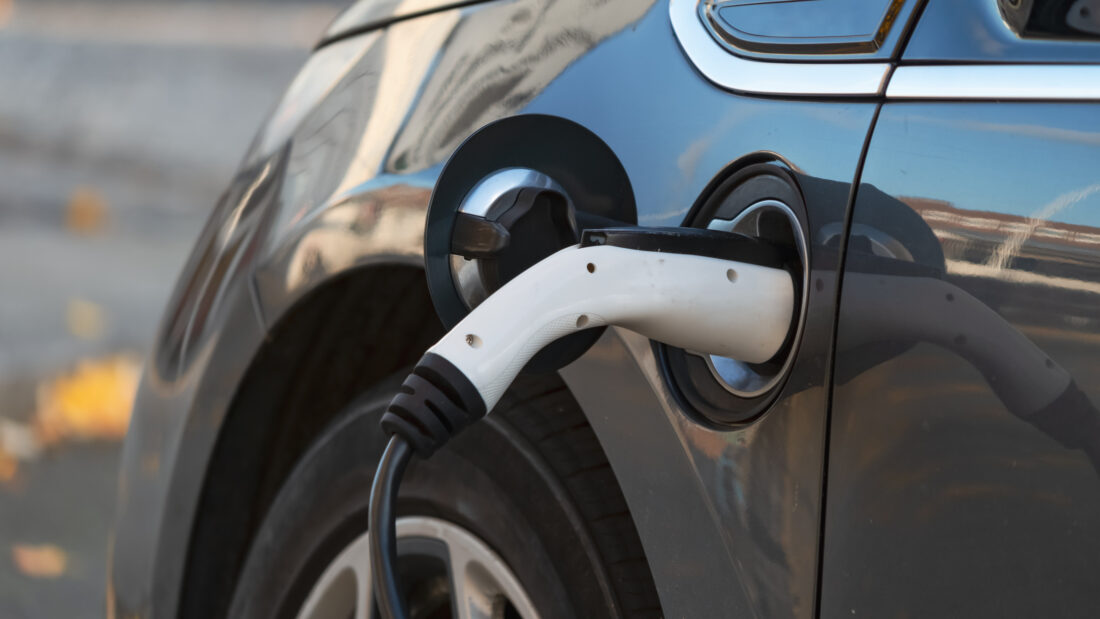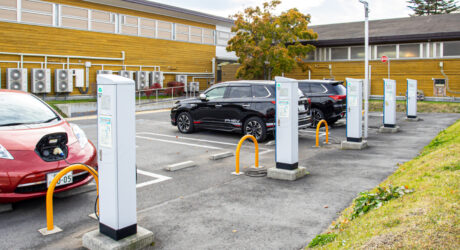Are There Government Grants for Electric Cars?
- Save over £1,000 a year with an electric car
- Get £1,500 off purchase costs and £350 off charging port costs
- Use our online calculator to get a free quote for an electric car charger in seconds
With electric car use already growing fast and numbers set to steadily increase, there are a number of government grants for electric cars available. As we move ever-closer to Net Zero 2050 it’s no surprise grant amounts are decreasing as take up grows so it’s worth getting in fast.
It’s possible to save £1,000 or more by switching to an electric car, for some savings can be as much as £3,000. For those savings alone EV vehicles are a change worth making.
On top of that, of course you’ll slash your carbon emissions, drop the stress of ever-rising fossil fuel costs and have a car that’s future-ready because petrol is clearly on the way out.
With government grants available for a range of purposes, there’s plenty of financial assistance available for both the purchase of an electric car and a charger. Indeed electric car costs are constantly becoming more affordable with an increasing range of models to suit a variety of needs.
With savings for both you and the environment plus the end of petrol vehicles already on the way, let’s take a look at the range of government grants available for electric cars to see which will best suit you.
Ready for an EV home charger? Use our quote comparison tool to find out how much you'd pay. It only takes a minute.

What's On This Page?
Click the links below and head straight to a specific section of the article.
- Who Issues Government Grants for Electric Cars in the UK?
- How Many Government Grants for Electric Cars Are There in the UK?
- What Was the Electric Vehicle Homecharge Scheme (EVHS)?
- What Is the EV Chargepoint Grant (EVCG)?
- What Is the Plug-In Car Grant (PICG)?
- What Is the On-street Residential Chargepoint Scheme (ORCS)?
- What Is the Workplace Charging Scheme (WCS)?
- How Do UK Electric Car Grants Compare?
Who Issues Government Grants for Electric Cars in the UK?
As a very contemporary measure that’s high on the government agenda, UK electric car grants are managed by a joint government department called the Office for Zero Emission Vehicles (OZEV). Staffed by employees from both the Department for Transport and the Department for Business, Energy and Industrial Strategy, the OZEV have a remit to promote and assist the transition to electric cars and other Low Emission Vehicles (LEVs), with funding available for both EVs and chargers. Learn more about the OZEV.
Since the grants started in September 2014, a total of 337,326 home chargers have been installed, which equates to a total grant value of £139.7 million. In the last 12 months alone, £19.17 million has been issued in grants for EV chargers.
How Many Government Grants for Electric Cars Are There in the UK?
There are currently four government grants on offer from the Office for Zero Emission Vehicles for electric cars. Each offers something different with specific criteria to ensure there’s financial assistance on offer, on some level, for a variety of drivers across the UK.
The four UK electric car grants are:
- Plug-In Car Grant (PICG)
- The EV Chargepoint Grant (formerly the Electric Vehicle Homecharge Scheme)
- On-street Residential Chargepoint Scheme (WCS)
- Workplace Charging Scheme (WCS)
Let’s explore each grant separately and see which award you may be eligible for.
Wondering about electric car charging times? Discover all you need to know in our guide to electric car charging times or get a free quote for an electric car charger and see how much you’d pay in seconds.
What Was the Electric Vehicle Homecharge Scheme (EVHS)?
You may have heard recommendations for the Electric Vehicle Homecharge Scheme; however, it ended on 30th April 2022. The OZEV replaced it with the EV Chargepoint Grant. However, if you had a submission still in progress, there’s nothing you needed to do as resubmissions for the EVHS were open until 31st March 2023.
What Is the EV Chargepoint Grant (EVCG)?
Like its predecessor, the EV Chargepoint Grant will award you with money off the installation costs for a domestic chargepoint. However, unlike the Electric Vehicle Homecharge Scheme, the EVCG is aimed squarely at the rental market.
To the dismay of many homeowners the EV Chargepoint Grant is only available for flats and rental accommodation - houses no longer qualify. Whether you’re the tenant, owner or landlord, you can apply to get up to 75% off the cost of installation for your electric car chargepoint.
Your approved installer can apply for the grant on your behalf before installation commences. If you qualify, your installer will receive a voucher for up to £350 to reduce the cost of installation for you. Once the reduction is taken off your installation costs, you’ll need to pay the remainder once your chargepoint is installed.
Eligibility criteria for the EV Chargepoint Grant include:
- Off-street parking
- Approved electric car makes and models
- Approved charger makes and models
- Approved installers
Discover how much it costs to run an electric car in our complete guide to electric car running and charging costs or get a free quote today using our online calculator and see how much you’d pay for an electric car charger.
What Is the Plug-In Car Grant (PICG)?
It might be called the Plug-In Car Grant but in reality, the grant is only applicable to a small number of electric cars, including: wheelchair-accessible cars, taxis and small vans.
Eligibility for the Plug-In Car Grant is much more geared towards electric vehicles used for commercial purposes, with qualifying vehicles including vans, lorries and mopeds.
If you do qualify for the grant according to the type of low emission vehicle you have, you’ll need to have a model which fits the OZEVs very specific list.
Pass this second stage and there are further criteria to meet for your vehicle category, such as the all-important RRP which means there is a cap on the maximum you can spend on the electric car if you want to qualify for the PICG.
Wading through the PICG’s criteria is worth it in the end because if you qualify, you could get 35% knocked off the cost of your car at purchase. In truth, it’s not you but your car dealer who needs to ensure you qualify because the grant is administered by them and awarded to you as a discount off the sale price of your car.
However you’ll want to familiarise yourself with the finer points of the PICG before you buy your electric vehicle so you can check the vehicle you plan to buy will qualify.
Eligibility criteria for the Plug-In Car Grant includes:
Qualifying Low Emission Vehicles: small vans, taxis, wheelchair-accessible vehicles, large vans, motorcycles, mopeds and small or large trucks.
Caps on RRPs, including VAT and delivery charges, are:
- £35,000 for wheelchair-accessible vehicles
- Large vans
- £10,000 for motorcycles and mopeds
- For small vans the grant must not exceed £2,500 when calculated as 35% of the RRP
- For large vans the grant must not exceed £5,000 when calculated as 35% of the RRP
- For taxis the grant must not exceed £7,500 when calculated as 20% of the RRP
- For small trucks the grant must not exceed £7,500 when calculated as 20% of the RRP. For large trucks there are limited £25,000 awards
Find the full list of qualifying makes, models and other criteria for the PICG on the DFE website.
What Is the On-street Residential Chargepoint Scheme (ORCS)?
If you park you car on the road because you haven’t got private parking, the On-street Residential Chargepoint Scheme could help you get reductions on the cost of a roadside chargepoint from your local authority.
Administered by Energy Saving Trust on behalf of OLEV, local authorities can dip into the £10 million pot put aside to fund local EV infrastructure. The chargepoints can only be for residential use and there are award-based specifications for everything from the chargepoint’s design to maintenance.
If you’d love the convenience of a chargepoint on the road outside your home, learn more about how to apply for the On-street Residential Chargepoint Scheme.
What Is the Workplace Charging Scheme (WCS)?
Similar to the EVCG, the Workplace Charging Scheme enables you to make savings on the cost of installing a chargepoint in a commercial space. The scheme is designed as part of the government’s EV infrastructure initiative so there’s no requirement for current EV ownership amongst staff.
If you’re the business owner or have landlord approval, you could qualify for a reduction of up to 75%, equal to up to £350, off the cost of installation for each socket on your business premises.
Eligibility criteria for the Workplace Charging Scheme includes:
- Installation of no more than 40 sockets
- A Companies House Reference Number for the qualifying business
- Approved installers
Discover more about eligibility for the Workplace Charging Scheme.
How Do UK Electric Car Grants Compare?
Here’s how the four UK electric car grants compare when placed side by side for easy reference:
Grant Type |
Who for? |
Award amount and Purpose |
Restrictions |
PICG |
Small vans, taxis, wheelchair-accessible vehicles, large vans, motorcycles, mopeds and small or large trucks |
Up to £1,500 for cars Up to £2,500 for small vans Up to £5,000 for large vans Up to £500 for motorbikes |
Restricted vehicle models, RRP and more |
EVCG |
Flats and rental accommodation |
Up to £350 for electric chargepoint installation |
Restricted vehicle models, charger models, installers and more |
OSRC |
UK residents without private parking |
Designated by LA for a roadside, residents-only chargepoint |
Restricted design, maintenance and more |
WCS |
UK businesses |
Up to £350 for each electric chargepoint socket installation |
No more than 40 sockets, registered companies, approved installers and more |
Browse our comprehensive guide to electric car charging or get a tailored quote for an electric car charger from our expert installers in minutes for a clear idea of how much you’ll pay for an electric car charger.
Related articles
View all EV charging articles
A Guide to Electric Car Batteries

EV Home Charger Installation Guide: How to Charge an EV at Home

OZEV Grant: What Is It and Am I Eligible?

The Best Apps for Finding EV Charging Stations

Electric Car Home Charging Stations: The Top Ten EV Chargers for Your Home

Should I Buy a Used Electric Car?

Electric Vehicle Range







